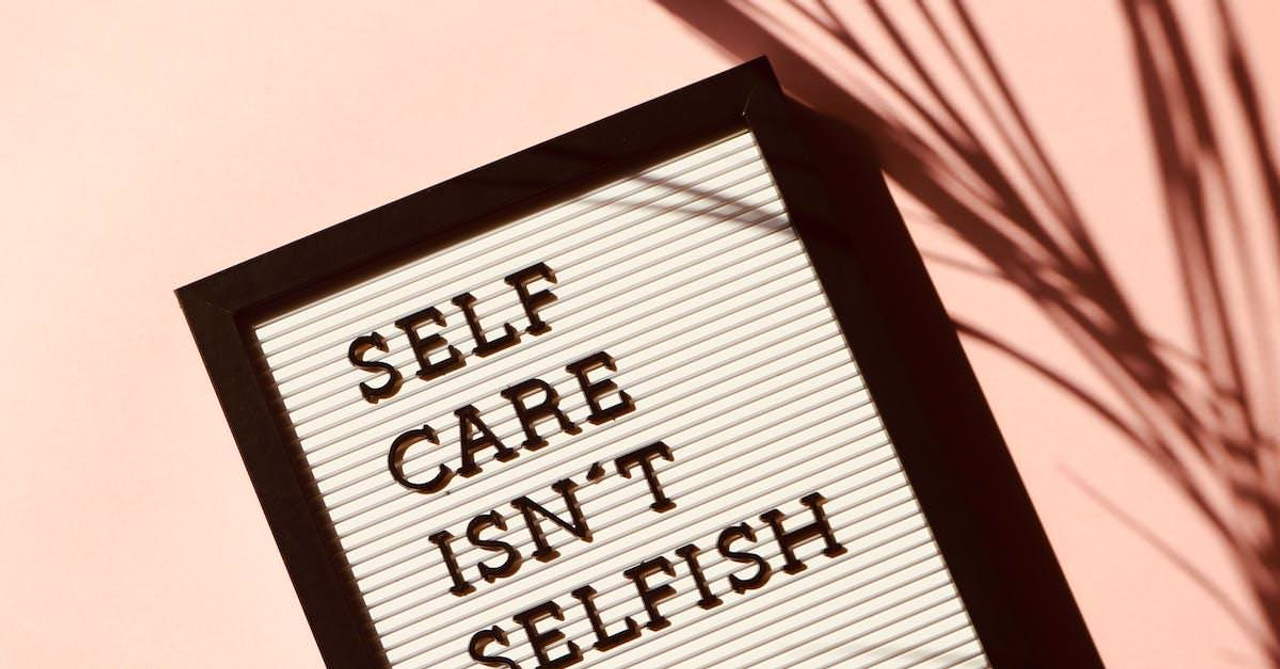Self-care is a crucial component of enhancing your mental and physical health. We frequently neglect taking the time to look after our mental health in our fast-paced society. However, using self-care life strategies can help reduce the signs of mental illness. You can work more effectively and be more present in your daily life if you take care of yourself. The eight self-care life tips discussed in this article can help you feel better about yourself and have better mental health.
Practice Mindfulness Daily

Being completely present and involved with what you are doing in the present moment, without distraction or judgment, is the practice of mindfulness. Your mental health and general well-being can be significantly improved by incorporating mindfulness into your daily routine.
Meditation is one way to practice mindfulness. Spend a few minutes every day sitting quietly and concentrating on your breathing. Bring your focus back to your breath when your thoughts start to stray. This routine can eventually aid in lowering stress and anxiety, enhancing focus and concentration, and developing a calm and peaceful attitude.
You can apply mindfulness to other aspects of your daily life, including chores, eating, and walking. Pay attention to your body's sensations, your food's flavors and aromas, or your movements as you clean. You can improve your awareness and appreciation of the present moment by giving these activities your full attention.
Keep in mind that practicing mindfulness calls for persistence and patience. With regular practice, you can increase your level of self-awareness and inner calm, which will enhance your mental health and general well-being.
Develop a Self-Care Routine

A vital component of maintaining a healthy lifestyle is self-care. It entails looking after your overall health—physically, mentally, and emotionally. You can avoid burnout, lessen stress, and enhance your overall mental health by engaging in self-care practices.
Creating a self-care routine is simple and can be tailored to your lifestyle and personal preferences. Start by determining which areas require attention. Make a list of the things you like to do and the things that relax you. It might be as easy as taking a warm bath or going for a daily walk.
A self-care routine needs to be reliable and enduring. Prioritize your self-care activities and schedule time for them every day or week. Avoid putting off or coming up with justifications for why you can't perform self-care activities. Keep in mind that practicing self-care is something you should do regularly. You have to get used to it and make it a daily priority.
Your mental health, your mood, and your stress levels can all be improved by incorporating self-care into your daily routine. In order to be at your best for both yourself and those around you, it is imperative that you look after yourself. Keep in mind that taking care of yourself is necessary, not selfish.
Stay Physically Active
In addition to being beneficial for your physical health, exercise is also crucial for maintaining your mental health. It enhances mood and cognitive function while assisting in the reduction of stress, anxiety, and depression. Additionally, it can boost confidence and enhance sleeping habits.
The likelihood of developing mental health issues can be lowered by engaging in regular physical activity. It causes the brain to release endorphins, a hormone that helps people feel better and reduces pain. Additionally, it promotes the development of new brain cells, which enhances memory and cognitive function.
Numerous activities, including brisk walking, running, cycling, swimming, yoga, dancing, and many more, can help you stay physically active. Staying physically active doesn't require you to spend hours at the gym; even a quick walk or some simple exercises you can do at home can be good for your mental health.
Even though it can be difficult, it is worthwhile to include physical activity in your daily routine. Start small by taking the stairs rather than the elevator or going for a stroll in the park during your lunch break. Finding an activity you enjoy and incorporating it into your routine is crucial.
Eat a Balanced and Nutritious Diet
A balanced, wholesome diet is very important for promoting both mental and general wellbeing. Consuming a variety of foods from various food groups gives you access to all the nutrients you need to keep your body and mind in good health. To make sure you get all the essential nutrients, it is advised to eat plenty of fruits, vegetables, whole grains, lean proteins, and healthy fats.
According to research, specific nutrients like omega-3 fatty acids, vitamins B and D, and minerals like zinc and magnesium can have a significant positive effect on mental health and reduce symptoms of stress, depression, and anxiety. To benefit from these nutrients, make sure to include foods high in them in your diet.
Additionally, skipping meals, overindulging, or consuming unhealthy foods can cause blood sugar levels to become unstable and result in mood swings, exhaustion, and irritability. Thus, maintaining regular mealtimes and regulating portion sizes are essential. Additionally, drinking plenty of water promotes healthy digestion, regulates body temperature, and improves memory and cognitive abilities.
Get Enough Sleep and Rest
For the best possible mental health, it is imperative to prioritize getting enough sleep and rest. The body needs sleep to maintain hormone balance, repair tissues, and consolidate memories. Anger, mood swings, and difficulty focusing can result from sleep deprivation or poor sleep quality. Adults should aim for 7-9 hours of sleep each night, according to experts.
In addition to sleep, resting during the day and taking breaks are essential for mental health. Burnout, anxiety, and depression can result from working too much and not taking enough breaks. To help reduce stress, experts advise taking brief breaks every 60 to 90 minutes, moving around, and experimenting with deep breathing or meditation.
Good sleep hygiene practices like establishing a sleeping-friendly environment, limiting screen time before bed, and adhering to a sleep schedule can all improve the quality of your sleep. Keep in mind that getting enough sleep and rest are essential self-care practices for maintaining mental health.











